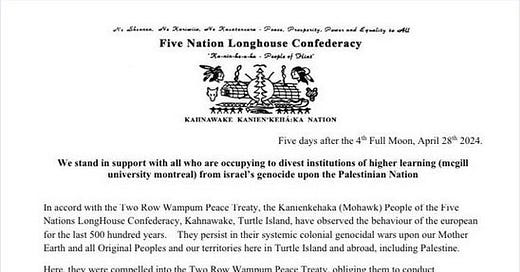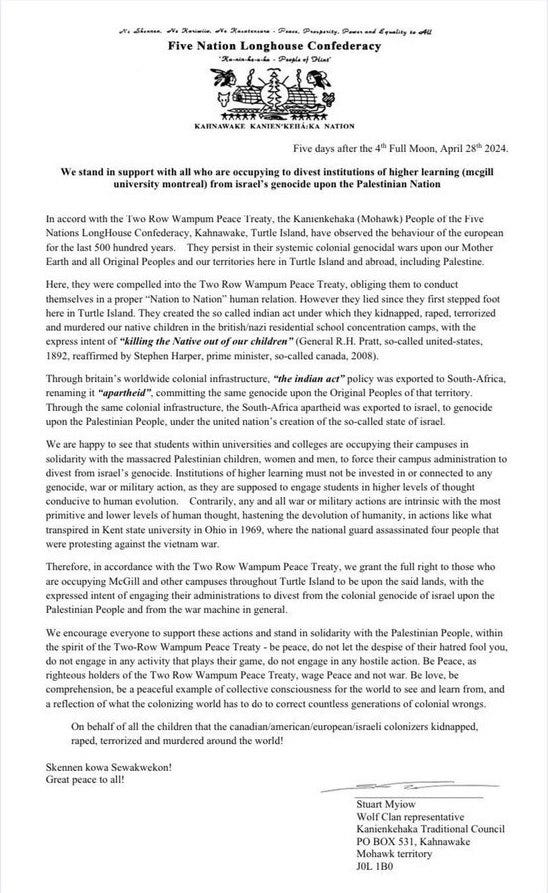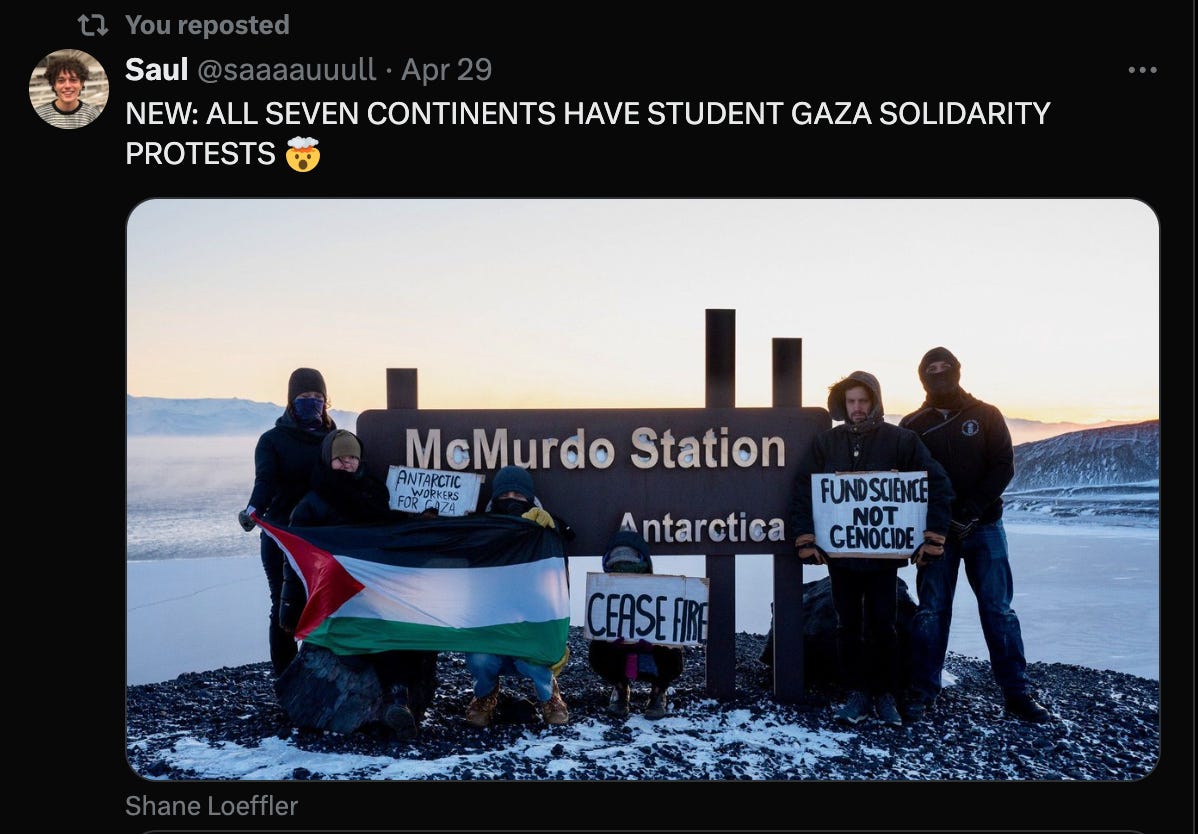On Care Work and Columbia and the Life-Long Project of Recovery
“It is no measure of good health to be well-adjusted to a profoundly sick society.” – J. Krishnamurti
My heart goes out to the mad ones, The sad ones, The ones smoking too much, Sleeping too much, Scrolling too much (or just enough to keep up), Sighing and side-eyeing our days away, Grief struck and pregnant with hope after months and lifetimes of possibilities long deferred– Activated. My heart goes out to the ghosts. I am one of escapism’s many victims; a survivor of all the times it is synonymous with survival – Having succumb to its betrayals of temporary relief, Having betrayed myself all too often in my attempts to make sense of why I always end up coming back to my vices and devices. I am getting better at knowing who to call, I am getting better at knowing when I need to sit with it on my own, I am getting worse at compromise – and I celebrate that I still believe in God even though I wonder how they choose when to look away.
I can’t go to the encampments
Or rather I have yet to, on account of fear inherited from the past –
Four years ago I was in handcuffs, forcefully sedated, having found myself unwound – wandering the subways for hours, giving all of my belongings away and arriving at the airport with a copy of Parable of the Sower in my hand and filled with a conviction that it was “time for love to go viral” – swimming the depths of an altered-state in a nation-state foundationally unequipped to care for me. A few weeks later, a virus put the world on pause and four years after that, ‘law’ and its ‘liberal’ mirages are bending back deeper into their lies.
“It is no measure of good health to be well-adjusted to a profoundly sick society.” – J. Krishnamurti
I am back in America after five months of being away. When I look out the window from my apartment in Los Angeles, all I see is beauty and ghosts. Palm trees, sunlight, and the omnipresent reminder that all of this belongs to people whose languages have been plunged into extinction – feeling the absence of words to describe this landscape that I will never know because of the genocides that exterminated nearly all of the people who I would learn them from.
One of the most moving things I saw on Twitter today was the statement from the traditional council of Turtle Island’s Kanienkehaka (Mohawk) peoples, in which they evoked the Two Row Wampum Peace Treaty to stand in solidarity with the student encampments for Palestine, granting “the full right to those who are occupying McGill and other campuses throughout Turtle Island to be upon said lands, with the expressed interest of engaging their administrations to divest from the colonial genocide of Israel upon the Palestinian People and from the war machine in general.” The Kahnawake councill’s support is the only kind of permission that can be held as legitimate, considering that the universities unleashing violence upon their students are themselves occupying stolen land without its stewards’ blessing.
I’ve been listening to the Columbia student-run WKCR radio for the past hour – encampment updates interspersed with invigorating #healingaudio interludes of jazz. A State of the ‘nation’ address for the ages.
“We love you. We won’t stop paying attention. Today was a big day, and we all need some rest.” - the broadcasters on WKCR
A lot of unraveling can be attributed to ghosts, and people who can and/or make an effort to listen to them are most vulnerable to sickness in this society.
I am mad enough to know when madness is on the horizon. I am worried because I see it both everywhere, and still on the way. There is the madness of being lied to, lied on, detained, and defiled. There is the madness of having to keep going. And then there is the madness of having to recover. Six months after October and the lies of a genocide being a ‘war’ are evaporating; the lies of a movement for peace being terrorism are telling on themselves through the unleashing of state militias to extinguish them. The students are not deterred, the encampments are spreading – the vehemence keeps going on. As of yesterday, when an encampment was planted in Antarctica, there are solidarity occupations on all seven continents of our world.
The ghosts of April are alive and well. On this day (30 April) 56 years ago, Columbia University unleashed 1,000 cops to campus who arrested nearly 700 people, and left several hundred students and faculty injured in their wake. On this day 49 years ago, the Vietnam War ended – seven years after the student uprisings that erupted nation-wide in protest of the war began.
Madness is a marathon that never ends, and seems to always repeat itself.

Leah Lakshmi Piepzna-Samarasinha’s Care Work: Dreaming Disability Justice is in the top 5 books of my life’s core syllabus. In it, they write:
“Crip emotional intelligence is understanding isolation. Deeply. We know what it’s like to be really, really alone. To be forgotten about, in that way where people just don’t remember you’ve ever been out, at meetings and parties, in the social life of the world. How being isolated, being shunned, being cut off from the social world of community is terrifying because you know that it can literally kill you. And that being alone also does not always have to be killing; it can also be an oasis of calm, quiet, low stimulation, and rest.
• Crip emotional intelligence is not taking it personally when someone cancels and continuing to invite them to things. To not forget them. . .
• Is understanding that disabled people have a full-time job managing their disabilities and the medical-industrial complex and the world—so regular expectations about work, energy, and life can go right out the window.
• Is noticing and showing respect for all the ways we push ourselves past our spoons all the time—when someone counsels someone in the middle of panic or blows their wrist spoons typing out resources. It understanding that we are in a constant dance of negotiating how to work while disabled or sick or in pain.”
The way Leah writes about this kind of emotional intelligence is a consistent reminder to me to not be ashamed. The majority of the time, shame is what powers lies.
I have been thinking a lot about shame lately.
Shame around how precarity is a barrier to solidarity. Shame around how precarity is relative. Shame around not being there. Shame around not knowing how to ‘be there’. Shame around not being there when and how it counts.
I’ve been wondering what’s on the other side of this shame.
What happens to the thousands of students six months from now? What happens six weeks from now? Who will be there to help them get out of bed? Who will tell them it is okay if they can’t sustain? And yes – the goal is to be able to sustain, to not let up, to grow in numbers and grow in tenacity and grow in rigor. The goal is to do whatever it takes to stop the bombs from raining, to stop money and credibility from flowing in all the wrong directions. The goal is to remember what the students are fighting for – to keep the gaze on Gaza and demand that no one look away from the Russian doll of atrocities.
What happens as everyone gets progressively less and less okay, and when this happens alongside realizing that the people in Palestine we are praying for and fighting for to be able to LIVE, will also need to navigate the life-long labyrinth of recovery. In other words, do we have the tools we need to invest in life, long-term?
It makes sense that after enduring cultural sentences of solitude (read: capitalism and colonialism), we need one another more than ever. It makes sense that we are jaded and afraid and stumbling and inclined to look out for ourselves while also realizing we can’t stand all the way up without each other. The tension, the fire, the possibility, the youth carrying courage for us all – it all makes sense.
What I’m sitting with is: How do we do it? How do we keep it going? How do we say: I will be there when you fall apart, when you feel like you can’t keep fighting, and I mean that. How do we hold the guilt of getting to choose how to stay alive? How do we hold the very notion of ‘choice’ unraveling? How do we know when to push past our limits in service of the greater good? How do we lean on the greatest good for support beyond lip service?
What happens as everyone gets progressively less and less okay, and when this happens alongside realizing that the people in Palestine we are praying for and fighting for to be able to LIVE, will also need to navigate the life-long labyrinth of recovery. In other words, do we have the tools we need to invest in life, long-term?
One of the reasons I wish I could be at the encampments is cuz it seems like these are questions that the students are navigating care-fully and rigorously. I wish I were there to learn from them first-hand. I’m so beyond grateful for all the ways they are documenting/archiving/expressing their innovation and commitments. And it’s not just Columbia - the students Vanderbilt University were reportedly the first to set up an encampment, and have been stewarding it for over a month. Cal Poly Humboldt can be credited for the escalation of encampments into occupations in their current iteration. Students in France and Japan have been resisting the militant repression of their encampments, too. There’s a whole dissertation/critique to be written around why Columbia is the nexus, but now is not necessarily the time for that. What I will say, though, is that while the ‘prestige’ of Columbia is an impetus behind that particular university garnering all this attention, it’s worth emphasizing that it is precisely because of Columbia’s disproportionate wealth (both in its endowment, and in the financial influence of its alums) that the encampment there is so high stakes / is garnering this degree of militant suppression by the state. And the students have done a beautiful job of strategically re-orienting their own disproportionate visibility wherever possible, which I commend.
At the end and beginning of the day, the courage of everyone involved in these solidarity encampments will echo with far more longevity than the cowardice of the state(s) that try, unsuccessfully, to subdue them. What an honor to witness an uprising this principled. I pray for everyone to be able to access the care they deserve each step of the way.
“You are my destiny. When you hold my hand, I understand the magic that you do.” - the song currently playing on WKCR.
With Love and In Solidarity,
Neema 📿







I was at Columbia Gaza Solidarity Encampment.. reading this article just now (July 2024). I can’t explain how much this means to me.❤️🩹😭
Recently started working thru Care Work: Dreaming Disability Justice, as well as coping with my newly hightened disabilities and how they'll affect the long term plans I was making and working on in my community. The shame I've been grappling with has felt insurmountable and suffocating. While I consider myself a revolutionary optimist, my mindbodyspirit has felt like it's crumbling as Im forced to make life-altering decisions, especially the ones that prioritize self care. Self care is community/collective care, and recognizing that is imperative to recognizing that the battle Im fighting within myself is between what I know to be my truth and the lies our capitalist and colonialist society has been drowning me in since I entered this world.
Thank you for creating art that emphasizes the need for care, both giving and receiving. I hope you experience the care you need in abundance and the strength to accept it when it arrives.
Love from a stranger,
Mav Bishop